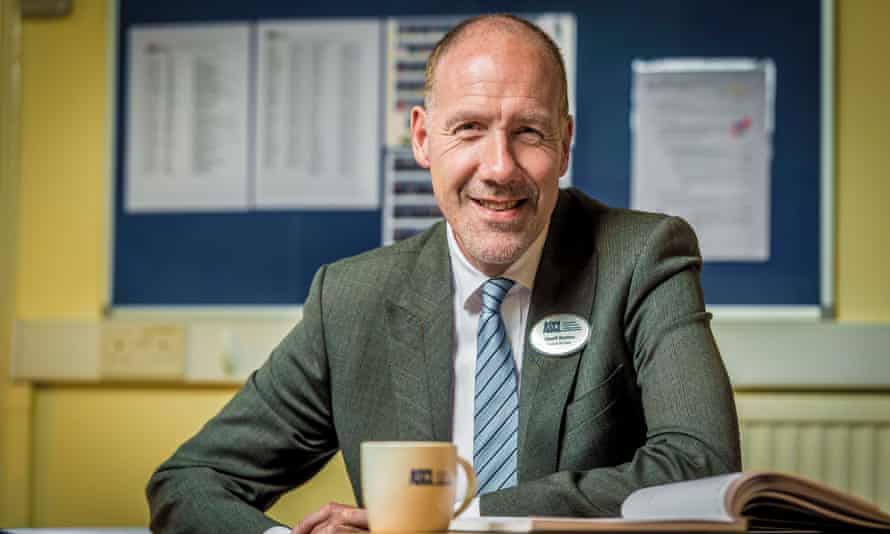When the government announced its first tranche of Covid recovery funding for schools, Anna Grice, a headteacher at Thameside primary in Abingdon, Oxfordshire, immediately knew where to go, as she had an existing relationship with an established local tutoring charity.
She was able to pick up the phone to Quest for Learning, one of the providers on the government’s approved list of catchup tutors, and re-establish their relationship after the long lockdown school closures.
The twice-weekly reading comprehension sessions that Tamzin Einon, a qualified teacher, runs with small groups of children are heavily subsidised by the government and painstaking work. Although Oxfordshire is often seen as an affluent county it includes pockets of high disadvantage, and Thameside has above-average numbers of pupils eligible for free school meals and with special educational needs.
“Some children haven’t picked up a book during lockdown and have struggled with home learning,” says Grice. “Either they didn’t have good enough devices or internet connection, or parents weren’t confident enough to support their learning or had several children to home school while trying to work from home.
“The National Tutoring Programme has been good for us because it has allowed us to work with an established provider for face-to-face teaching.”
But will the tutoring programme work? The government’s own research suggests that learning loss for primary children is already two months in English and three months in maths, with wider gaps in some parts of England (notably the much prized “red wall” areas), and the numbers of children off school because of the new Delta variant is increasing.
The political fallout from the resignation of Sir Kevan Collins, the catchup chief, after the government’s rejected his £13bn recovery plan, eclipsed the detail of how the government funding – a further £1.4bn for the next three years in addition to £1.7bn currently promised – would be spent.
Described by Collins as a “half-hearted approach”, the extra investment amounts to £310 for each pupil over four years and provoked anger and disappointment among school leaders and teacher organisations.
That is partly because the tutoring programme, rather than a combination of extra tuition, a longer school day and wider pastoral support that Collins wanted, is now doing the heavy lifting in a plan that the prime minister, Boris Johnson, claims will make sure no child is left behind. The education secretary, Gavin Williamson, promised 100 million tutoring hours would be available.
But a significant portion of the funding must be spent on the government’s own list of tutors in a contract, currently administered by the education charity the Education Endowment Foundation, that will be taken over in September by the Dutch multinational recruitment agency Randstad, widely thought to have been successful by significantly undercutting other bidders on cost.
Not all schools have shared Grice’s positive experience, with some claiming access to high-quality tutors through the national tutoring programme is patchy, and that the scheme is complicated to administer, involves too much online learning, and overlooks the impact of the pandemic on resilience, mental health and social skills. Earlier this year it emerged that the work was being outsourced to tutors as young as 17 in Sri Lanka.

Keziah Featherstone, head of Q3 Academy in Tipton, West Midlands, and a member of the Headteachers’ Roundtable thinktank, said her school’s experience had not been good as many tutors were only offering online lessons, and the tutors changed frequently so could not build relationships with pupils.
“Initially a number of the approved agencies we contacted said they had no capacity for our school. We are using the school day to tutor students, but this means taking them out of other subjects and creating more gaps in their knowledge.
“After so much online learning, pupils are fatigued using technology. They find it difficult to concentrate and resent not having a real person to learn from. Sometimes when students are late to their timeslot, which has happened often due to our Covid safety measures, the tutors have not waited and have logged off. This has made previously keen students very angry and resentful.
“We know our students learn best when they feel secure and trust the adults they are working with, and this is impossible when faces change every week.”
There are signs that the government is listening to concerns, with more money in the latest announcement going direct to schools so they can make their own arrangement rather than being obliged to use the national tutoring programme. But more than £433m is destined for the NTP from September, and headteacher organisations say that money should go direct to schools.
Geoff Barton, general secretary of the Association of School and College Leaders, said the government’s fixation with tutoring was “one dimensional”. “Tutoring is certainly one possible solution for students, but the people best placed to identify the widely varying needs of young people are the teachers who see them every day.
“Handing the significant national tutoring programme funding direct to schools, with a remit to spend it wisely to benefit their students in whichever way suits them best, seems to us to be a sensible way of addressing the issue of lost learning caused by the pandemic,” he said.

According to the Education Endowment Foundation, the centralised tutoring programme was designed to use the best academic evidence about narrowing gaps in outcomes for poorer children and is necessary to combat regional inequalities in the tutoring market.
All providers go through a rigorous assessment process and EEF’s chief executive, Prof Becky Francis, said almost 90% of schools were planning to continue their provision next year. “We have encouraged feedback from schools over the course of the school year, and should any school have specific concerns we would urge them to contact us direct,” she said.
The scheme will be fully evaluated by the EEF and government, but by then much of the money will have been spent. Lee Elliot Major, professor of social mobility at Exeter University, who presented a blueprint for a national tutoring service to government last year, believes massively scaling up from small well-resourced trials is difficult, especially if you are trying to do it on the cheap. “The outcomes are unlikely to be as good,” he said.
Elliot Major is a longstanding advocate of a national tutoring service, having researched the advantages conferred on middle class pupils whose parents top up their school education with private coaching. But he believes the government is making a mistake in tapering down its investment over the next three years, at the end of which schools will be expected to fund the service themselves.
“Tutoring is inevitably going to be popular with policymakers because it is easier to quantify than other interventions, it resonates with parents and evidence shows that one-to-one and small group tuition is very effective,” he says. “But if you really want to level up the playing field, a national tutoring programme should be there for as long as we have the disadvantage gap. And everything in education is about variation or consistency. If you are promising 100m hours of tuition you need to be very sure it is uniformly good quality, and if you are handing all the money over to schools, they also need to be held to account for how they spend it.”
Featherstone acknowledges that the government’s intentions are good but says the money is not enough and the implementation of the tutoring plan has dented confidence that the necessary gains for the most disadvantaged pupils will be made.
“Ultimately no one activity will fully enable students to recover, and every school will be different. I would hope that the DfE [Department for Education] would be celebrating the knowledge, skills, and dedication of its school leaders, not tying their hands with directives.”
Stay connected with us on social media platform for instant update click here to join our Twitter, & Facebook
We are now on Telegram. Click here to join our channel (@TechiUpdate) and stay updated with the latest Technology headlines.
For all the latest Education News Click Here
For the latest news and updates, follow us on Google News.
